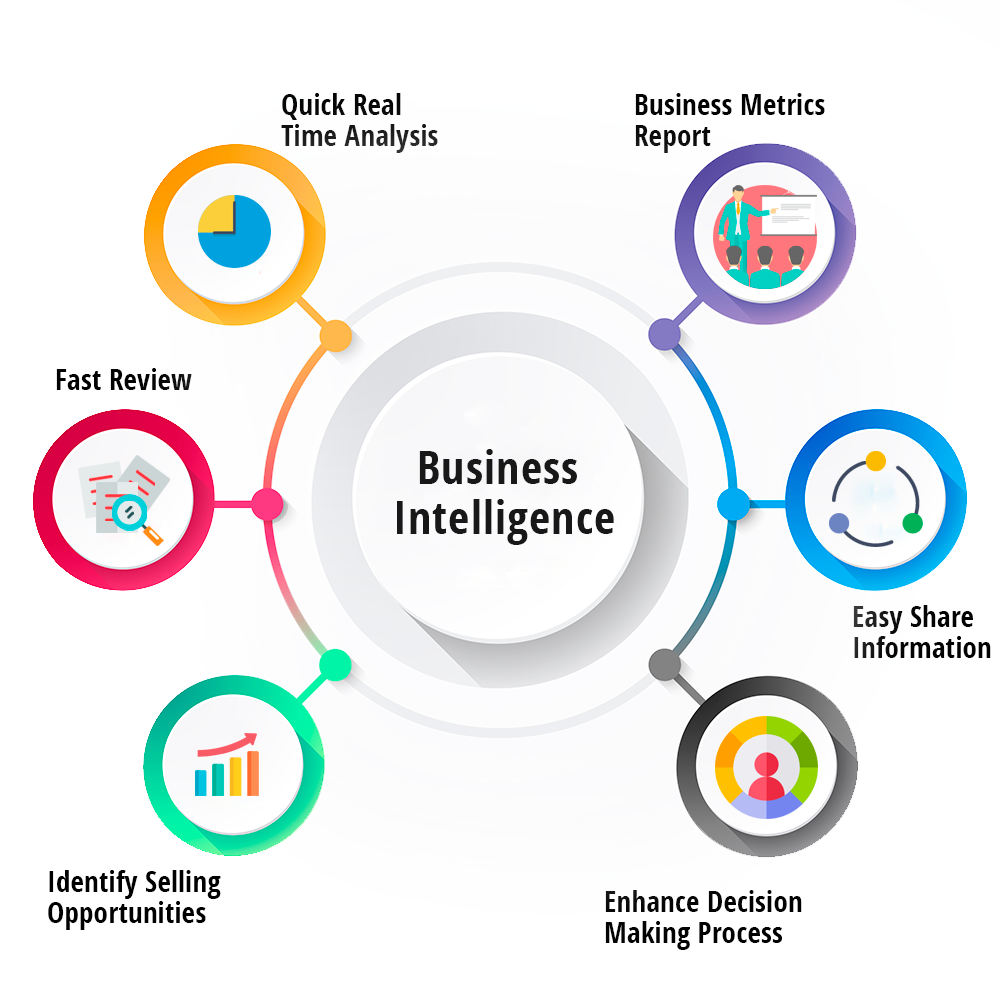
How Business Intelligence Software Transforms Business Operations
In today’s fast-paced and competitive business landscape, organizations need to stay agile and informed to make data-driven decisions. The increasing amount of data generated by businesses has led to the development of Business Intelligence (BI) software, which helps companies to extract insights from their data and transform their operations. In this article, we will explore how Business Intelligence software transforms business operations, its benefits, and the key features to look for in a BI solution.
What is Business Intelligence Software?
Business Intelligence software is a set of tools and technologies that enable organizations to collect, integrate, analyze, and present data in a way that supports better decision-making. BI software helps businesses to identify trends, opportunities, and challenges, and provides a comprehensive view of their operations. The primary goal of BI software is to provide actionable insights that can inform strategic decisions, improve operational efficiency, and drive business growth.
How Business Intelligence Software Transforms Business Operations
Business Intelligence software transforms business operations in several ways:
- Improved Decision-Making: BI software provides real-time insights and analysis, enabling businesses to make informed decisions quickly. With access to accurate and up-to-date data, organizations can identify areas of improvement, optimize resources, and capitalize on new opportunities.
- Enhanced Operational Efficiency: BI software helps businesses to streamline their operations by identifying bottlenecks, reducing waste, and improving processes. By analyzing data on workflow, productivity, and resource utilization, organizations can optimize their operations and achieve greater efficiency.
- Increased Revenue: BI software enables businesses to identify new revenue streams, improve customer engagement, and enhance customer experiences. By analyzing customer behavior, preferences, and needs, organizations can develop targeted marketing campaigns, improve sales strategies, and increase revenue.
- Better Risk Management: BI software helps businesses to identify potential risks and develop strategies to mitigate them. By analyzing data on market trends, customer behavior, and operational performance, organizations can anticipate and respond to potential risks, reducing the likelihood of financial losses.
- Improved Collaboration: BI software facilitates collaboration among different departments and teams by providing a shared platform for data analysis and insights. By accessing the same data and insights, teams can work together more effectively, share knowledge, and drive business outcomes.
Benefits of Business Intelligence Software
The benefits of Business Intelligence software are numerous:
- Data-Driven Decision-Making: BI software enables organizations to make informed decisions based on data, reducing the risk of relying on intuition or guesswork.
- Improved Operational Efficiency: BI software helps businesses to optimize their operations, reduce waste, and improve productivity.
- Increased Revenue: BI software enables organizations to identify new revenue streams, improve customer engagement, and enhance customer experiences.
- Better Risk Management: BI software helps businesses to identify potential risks and develop strategies to mitigate them.
- Competitive Advantage: BI software provides organizations with a competitive advantage by enabling them to respond quickly to changing market conditions, customer needs, and competitive threats.
Key Features to Look for in a Business Intelligence Solution
When selecting a Business Intelligence solution, there are several key features to look for:
- Data Integration: The ability to integrate data from multiple sources, including databases, spreadsheets, and external data sources.
- Data Analysis: Advanced analytics capabilities, including predictive analytics, statistical analysis, and data mining.
- Data Visualization: The ability to present complex data in a clear and intuitive format, using charts, graphs, and other visualizations.
- Real-Time Insights: The ability to provide real-time insights and analysis, enabling businesses to respond quickly to changing conditions.
- Scalability: The ability to scale up or down to meet the needs of the organization, handling large volumes of data and user demand.
- Security: Robust security features, including data encryption, access controls, and auditing, to protect sensitive data and ensure compliance with regulatory requirements.
- User Interface: An intuitive and user-friendly interface, enabling non-technical users to access and analyze data, and create reports and visualizations.
Best Practices for Implementing Business Intelligence Software
To ensure successful implementation of Business Intelligence software, follow these best practices:
- Define Business Objectives: Clearly define business objectives and identify the key performance indicators (KPIs) to be measured.
- Assess Data Quality: Assess the quality and accuracy of the data, and develop strategies to improve data quality and integrity.
- Develop a Data Governance Plan: Develop a data governance plan to ensure data security, access controls, and compliance with regulatory requirements.
- Train Users: Provide training and support to users, ensuring they understand how to access and analyze data, and create reports and visualizations.
- Monitor and Evaluate: Continuously monitor and evaluate the effectiveness of the BI solution, identifying areas for improvement and optimizing the solution to meet changing business needs.
Conclusion
Business Intelligence software has transformed the way organizations operate, enabling them to make data-driven decisions, improve operational efficiency, and drive business growth. By selecting the right BI solution and following best practices for implementation, organizations can unlock the full potential of their data and achieve a competitive advantage in the market. With its numerous benefits, including improved decision-making, enhanced operational efficiency, and increased revenue, Business Intelligence software is an essential tool for any organization looking to stay ahead of the competition and achieve success in today’s fast-paced business landscape.
Closure
Thus, we hope this article has provided valuable insights into How Business Intelligence Software Transforms Business Operations. We appreciate your attention to our article. See you in our next article!


